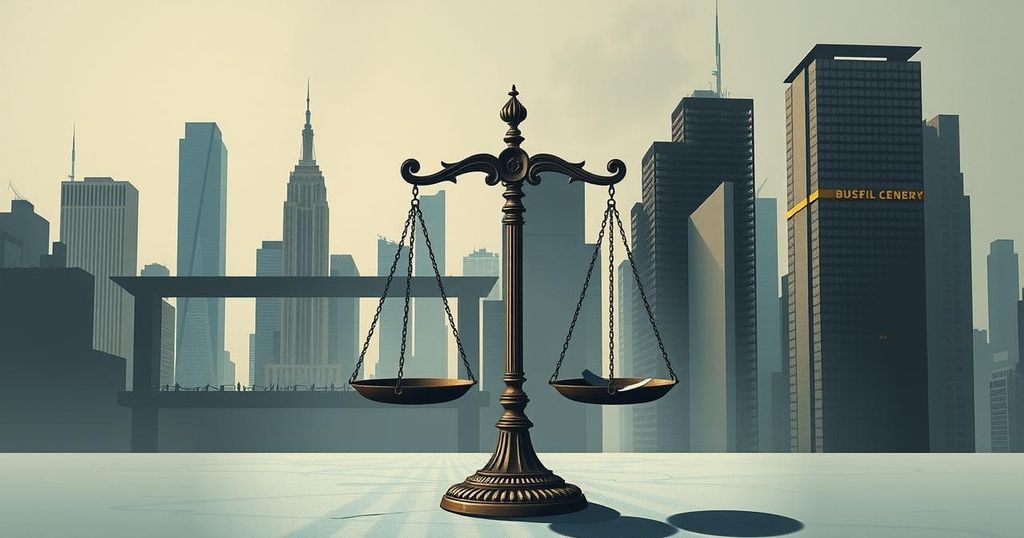On February 11, 2025, Iran witnessed widespread protests against economic hardship, unpaid wages, and political executions. Demonstrators from various sectors, including healthcare and housing, expressed their frustrations in cities across the country. The protests reflect deep public dissatisfaction with the government’s management of the economy and civil liberties amid escalating unrest.
On February 11, 2025, protests erupted throughout Iran as workers, nurses, and defrauded homebuyers demonstrated against economic hardships and government mismanagement. In cities like Tehran, Bushehr, Qazvin, Gilan, Dehdasht, and notably outside Evin Prison, citizens spoke out against rising inflation, delayed wages, and increasing executions. These protests illustrate a growing frustration with the Iranian government’s handling of the economy and civil liberties.
In Dehdasht, tensions intensified when protesters attempted to occupy Police Station No. 12, reflecting the public’s mounting outrage. Demonstrators filled the central square, rallying under slogans against government oppression and appealing for nationwide unity. Social media spread calls like “Don’t leave Dehdasht alone!” showcasing the expanding nature of the protests across the nation.
In Tehran, nurses from Rasoul Akram Hospital expressed their grievances, chanting, “Empty promises are enough, our tables are empty!” This protest highlights the deepening crisis in Iran’s healthcare sector amid increasingly difficult work conditions and unfulfilled wage payments.
The protests also saw the families of death row prisoners gather outside Evin Prison, demanding an end to political executions. Demonstrators carried images of condemned inmates with banners saying, “No to executions!” This event marked the 55th week of the ‘No to Executions Tuesdays’ campaign, focusing on the regime’s increasing capital punishment.
In Bushehr, contract workers at Fajr Jam Gas Refinery voiced similar discontent, shouting, “Enough with promises; our tables are empty!” This unrest reflects the broader labor discontent stemming from an economy plagued by mismanagement and international sanctions, impacting the oil and gas industry.
In Qazvin, victims of the National Housing Plan protested outside the governor’s office against the government’s failure to deliver promised homes, chanting, “Protest is our undeniable right!” Their frustrations underscore the systemic housing crisis exacerbated by inflation and corruption in real estate deals.
Meanwhile, in Gilan, workers at the Foolad Khazar Steel Plant organized a strike over unpaid wages and job insecurity, as reports indicated a surge in labor activism amidst rising inflation. In Khash, southeastern Iran, authorities conducted a violent raid using live ammunition, resulting in the arrest of Mahmoud Shahnawazi, underscoring the state’s forceful response to dissent, notably against ethnic minorities.
Reports from Chabahar reveal further violence, as security forces executed a raid on Hootabad, demolishing homes of Baluch residents without prior notice. Additionally, parents of students killed in a tragic bus accident confronted the Minister of Education in Kerman, demanding accountability for the negligence that resulted in the tragedy.
As the Iranian rial declines to unprecedented lows and the stock market suffers significant losses, public discontent continues to simmer. The growing wave of civil unrest reflects deep dissatisfaction with the clerical regime’s economic management and its implications for civil rights and freedoms in Iran.
The protests across Iran on February 11, 2025, highlight widespread dissatisfaction with the government’s handling of economic turmoil, civil rights abuses, and systemic corruption. From workers protesting unpaid wages to families demanding an end to political executions, the scope of public discontent underscores a significant challenge for the Iranian regime amidst a climate of escalating unrest.
Original Source: www.ncr-iran.org






